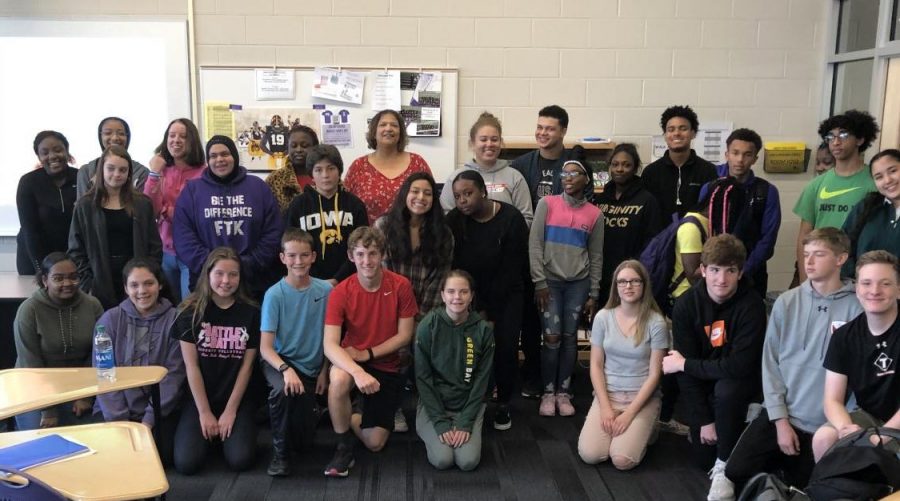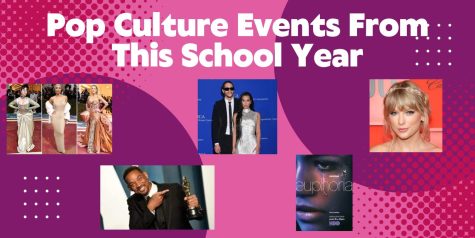Venise Berry, Diversity Speaker, visits Liberty High
Venise Berry, an author and professor at the University of Iowa, visited Liberty on October 15th, 2019 to talk about racialism in the media.
Venise Berry stands with Liberty Students for a group photo on Tuesday, October 15th.
Venise Berry is an African American author and professor of journalism and African American studies at the University of Iowa. She has spent almost twenty years researching racial bias in the media and has written three books, soon to be four, on her own at the same time. These books, So Good, an African American Love Story (1996), All of Me, a Voluptuous tale (2000), and Colored Sugar Water (2002) are all national bestsellers, and all focus on African American women in true to life situations. Berry also has a number of other projects, including a documentary and two books with her brother, S. Torriano Berry, who is a retired film professor.
To follow the theme of her novels, Berry speaks to younger audiences about her developing theory of racialism.
“Racialism,” said Berry, “is the normalization of specific images and ideas about race in the media. In a cyclical process images and ideas are produced, distributed, and consumed repetitively and intertextually.”
The repetition of harmful ideas helps create a culture that is less accepting of minorities and unfortunately, some companies do it automatically, often using models with different skin tones in ways that might seem strategically racist. In an example from Berry’s presentation, an advertisement for baby food, the two infants with darker skin were placed behind the baby with the lightest skin. The consumer has no idea if the company did this consciously, but because society is so used to these messages its difficult to notice unless they actively look for it.
However, not every instance of this is intentional, which is why cancel culture, the trend of rallying together on social media and ‘cancelling’ a company or person based on their actions, is not always an effective way to end racism.
“Stereotypical ideas and attitudes are shaped and sustained over decades through the media. Racialism, in my opinion, is tied specifically to the media and it perpetuates this notion of stereotypes in relation to African American culture,” explained Berry.
Media that features African American stereotypes can be found everywhere. Berry calls this the “commodification of race”, or the constant exposure of the public to these harmful ideas that logically, the public knows hold no truth. The music industry, specifically, has hurt the reputation of African Americans. Rap has given African Americans a label that is unrealistic and restrictive to both men and women. The gangster stereotype is repeated constantly on album covers and in music videos, and sometimes even in tv shows and video games.
“I think that rap [music] has degraded women so much that they don’t know what respect is and men don’t know how to give it,” said Berry.
Damaging ideas like the ones represented in the media can have a profound effect on the youth, which is why it’s important that Berry speaks to high schoolers about her research. Our future is partly defined by what we are exposed to, and when these influences are negative or oppressive, that shapes how we see ourselves and others.

Aubrey Dallner, a senior, is a new member of The Live Wire staff. Ever since grade school, she has enjoyed writing stories and making art, so joining The...













